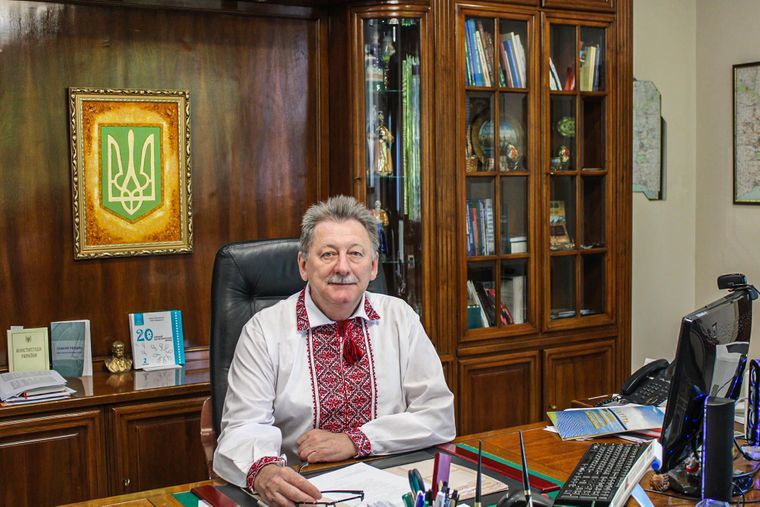Ukrainian Ambassador to Minsk Igor Kizim said that Kiev is concerned about the "integration" of Russia and Belarus.
The diplomat spoke about this in an interview with the Hromadske TV channel, answering a question about the agreement between the Belarusian leader Alexander Lukashenko and Russian President Vladimir Putin on Russia's assistance to the republic at the first request.
The ambassador said that "the rapprochement of the countries has begun," and suggested that Lukashenka's visit to Moscow would take place in the near future, during which, in his opinion, the issues of "integration" would be discussed.
Kizim also recalled the words of Lukashenka, who said that Belarus and Russia have a "single army".
“How deep the integration goes, this, of course, worries us.
Because before we at least understood, and these were verbal guarantees from Belarus, that our border would remain peaceful.
But how the situation will develop further against the background of the rapprochement between Belarus and Russia - this raises questions, ”the Ukrainian ambassador said.
Kizim added that Moscow and Minsk have "strong" relations in military aspects, "close cooperation between the special services and other law enforcement agencies."
“Further rapprochement, of course, will be negative for us, and we must take this into account,” the ambassador added.
Igor Kizim
Facebook
© Embassy of Ukraine in the Republic of Belarus
In mid-August, Ukrainian Foreign Minister Dmitry Kuleba said that a weakened Belarus would be an "easy prey" for Russia.
According to the ambassador, allegedly in the interests of Russia "weakening the countries in relation to which it pursues an active foreign policy and where it wants to strengthen its positions."
On September 9, Russian presidential press secretary Dmitry Peskov said that the topic of "merger or takeover" of Belarus by Russia would not be discussed during Lukashenko's visit to Moscow, and called such statements "nonsense."
“There can be no mergers, acquisitions and so on as a result of the visit.
This is absolute nonsense.
The visit is important, especially given the days that Belarus is going through.
You know that our relations are of a special partnership, allied relations, multi-vector, ”RIA Novosti quoted him as saying.
According to Peskov, at the meeting, Vladimir Putin and Alexander Lukashenko intend to discuss trade and economic cooperation and issues related to debts, energy resources, oil supplies, as well as integration within the EurAsEC, CIS, and the Union State.
“And exchange of views on the most urgent processes taking place on the European continent, regional conflicts,” added Peskov.
First Deputy Chairman of the State Duma Committee on CIS Affairs, Eurasian Integration and Relations with Compatriots Viktor Vodolatsky, in a conversation with RT, noted that the Ukrainian ambassador should not interfere in the internal affairs of the Union State.
“This is our business, Russia and Belarus, and we do not need mediators in this matter.
The Belarusian borders have always been and will be peaceful, ”the MP said.
He recalled that the integration of Russia and Belarus has been going on for more than one year, the process is underway, prescribed within the framework of the Union State.
“The meeting of the presidents of the two countries will just be a continuation of the roadmap that was formed when the first union agreement was signed.
Where our border runs, it is peaceful.
We do not threaten anyone, so Ukraine does not need to worry about its borders, it should worry about ending the civil war, ”Vodolatsky concluded.
Economist and political scientist Oleksandr Dudchak also pointed out that the border the Ukrainian ambassador talks about has always been peaceful.
“Why the Ukrainian ambassador should be concerned about the integration of Russia and Belarus is not clear.
These are allied states.
It is obvious that Ukraine is once again relaying the opinion of the West, ”he stressed.
Let us remind you that on August 9, after the announcement of the preliminary results of the presidential elections in Belarus, according to which Lukashenko won a victory, residents of the republic who disagreed with the voting results began to protest.
On August 15, a telephone conversation between Putin and Lukashenko took place, during which the heads of state discussed the state of affairs in Belarus and expressed confidence that all the problems that had arisen would soon be resolved.
“The main thing is that these problems are not taken advantage of by destructive forces striving to harm the mutually beneficial cooperation between the two countries within the framework of the Union State,” the Kremlin stressed.
After that, Lukashenka said that Moscow, at the first request, will help the republic in ensuring security in the event of external military threats.
The leader of the republic specified that he had agreed on this during a telephone conversation with Putin.
On August 16, Putin and Lukashenko had another telephone conversation.
According to the Kremlin, the Russian side confirmed its readiness to provide the necessary assistance in resolving the problems that have arisen on the basis of the principles of the Treaty on the Establishment of the Union State, as well as (if necessary) through the Collective Security Treaty Organization.
Later, Lukashenko said that Minsk and Moscow should use a joint grouping of armed forces if they "twitch" on the western border of the Union State.
Prior to that, Vladimir Putin announced the formation in Russia of a reserve of security officials who can provide assistance to Belarus, but only if the extremists in the republic cross certain borders.

